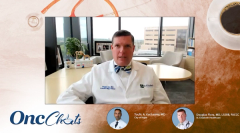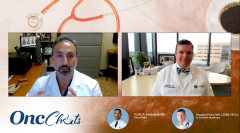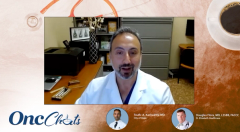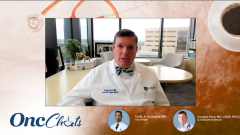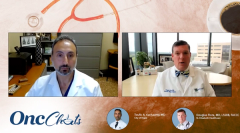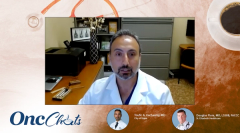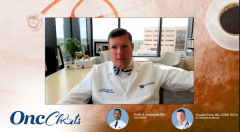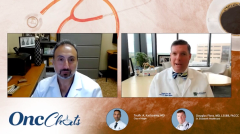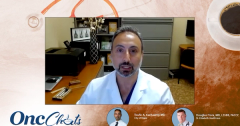
Assessing the Promise of AI in Oncology: Definitions and Goals
In this first episode of OncChats: Assessing the Promise of AI in Oncology, Toufic A. Kachaamy, MD, and Douglas Flora, MD, LSSBB, FACCC, define artificial intelligence and highlight the goals of these tools in healthcare.
Episodes in this series

In this first episode of OncChats: Assessing the Promise of AI in Oncology, Toufic A. Kachaamy, MD, of City of Hope, and Douglas Flora, MD, LSSBB, FACCC, of St. Elizabeth Healthcare, define artificial intelligence (AI) and highlight the goals of these tools in healthcare.
Kachaamy: Hi everyone. I’m Toufic Kachaamy, MD. I’m the chief of medicine at City of Hope in Phoenix, Arizona, and the director of gastroenterology. I’m also the chair of the Endoscopic Oncology Special Interest Group for the American Society of Gastrointestinal Endoscopy. I am very fortunate to be joined today by Dr Douglas B. Flora, who serves as the executive medical director of Oncology Services and The Robert and Dell Ann Sathe Endowed Chair in Oncology at St. Elizabeth Healthcare.
Dr Flora was born and raised in Cincinnati graduating from The Ohio State University in 1999. He has been named a top doctor in hematology and oncology by Cincinnati Magazine for 16 consecutive years. Dr Flora is a board member of the American Cancer Society Regional Board and the Kentucky Society of Clinical Oncology. He also serves on many committees for the American Cancer Society, the American Society of Clinical Oncology, the Association of Community Cancer Centers, and the Kentucky Society of Clinical Oncology.
More importantly, and very relevant for today, he is launching the first AI and precision oncology peer-reviewed journal, which is focused on a very exciting field that is evolving very fast. We are fortunate to have him join us today to answer some of the burning questions that I and others have about AI in oncology. Dr Flora, thanks for joining. For our listeners, can you define AI? Everyone talks about it, but do you have a favorite definition that you use to describe it?
Flora: I think for those of us in the field who are taking care of patients, the difference between this and the other computer systems that we’re all savvy with is that this is the next level of generative AI. It has the ability to not just take gigantic swaths of data and distill signal from noise, but it’s able to make decisions and recognize patterns that we couldn’t understand because of the complexity and the depth of those patterns across multiple layers. Ultimately, we think of this as something that can mimic human intelligence, tools that can interpret information, something that can use nuance and judgment that is well beyond the normal understanding of what we think computers and search engines should do.
Kachaamy: Fantastic. Artificial intelligence has been discussed on and off for over a decade, if not longer. People like Elon Musk have been warning us for a long time about its arrival. However, over the past year maybe, there has been an inflection point. Why do you think that is? Why is it suddenly everywhere today?
Flora: It is, isn’t it? My entire Twitter feed, everything that I pick up, everything that I read—it seems like they have stuck AI on it now. There are a few technical reasons for this. One is, over the past couple of years, there have been some major advances in transformers and large language models that probably are beyond the scope of most of the oncologists who might be listening to this program. The technology has accelerated rapidly.
Then, the other part of that is in medical records: we now have discrete entry fields. We have big data with genomics and medical imaging data. Everybody is on electronic health records now, and so, this vast amount of data that we can now collect and analyze has been a game changer. The third thing is related to real-world stuff. Given this confluence of events, industry has noticed, and there has been a large-scale public and private investment in AI for healthcare. Companies are looking for those silver bullets and advances, which has accelerated the implementation, discovery, and development of these tools.
Check back on Monday for the next episode in this series.


